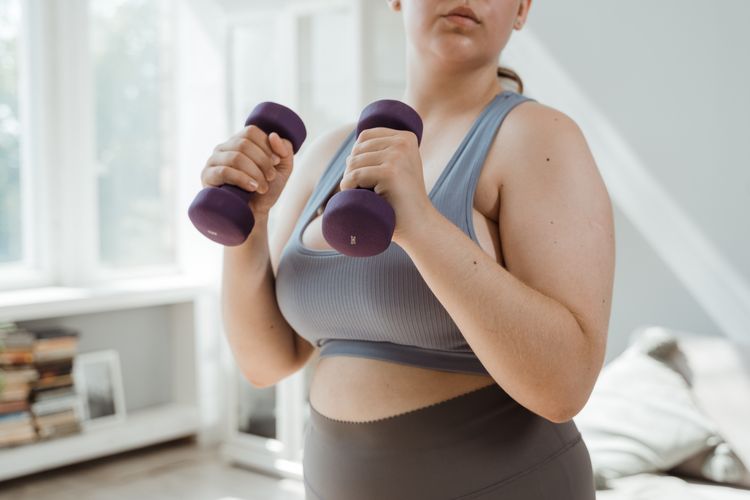There are many paths to weight loss. Some more successful, others more sustainable. We are looking to do both. To create weight loss that is both sustainable and successful. Weight loss is reliant on a few factors, such as diet and exercise. But there are a few factors you might not have thought of in your weight loss journey, which could be effecting your progress. We will cover them here.
BALANCE YOUR BLOOD SUGAR
One most people don’t even consider is blood sugar. You might be thinking what blood sugar has to do with anything. So I will explain it briefly.
HOW BLOOD SUGAR WORKS
Blood sugar or blood glucose levels show the amount of sugar being transported in the blood during in a single moment. The sugar comes from the food we eat. The body then regulates blood glucose levels so that they stay balanced and are neither too high nor too low. It must remain stable for the body to function properly.
The sugar in the blood is not the same as sucrose, the sugar in the sugar bowl. There are different kinds of sugar. Sugar in the blood is known as glucose. Our blood glucose levels change throughout the day. After eating, our levels rise and then settle down after about an hour. They are at their lowest point before the first meal of the day, which is normally breakfast.
Our body runs off of carbs. And there are two types of carbohydrates, simple and complex. Simple carbs are in processed foods, such as candy, bread, pasta. Complex carbs are in whole foods like millet, quinoa, brown rice, beans, legumes, veggies and beans. So when we eat carbohydrates, such as sugar, or sucrose, our body digests it into glucose, a simple sugar that can easily convert to energy. The human digestive system then breaks down carbohydrates from food into various sugar molecules. Glucose being the body’s main source of energy.
But glucose can only enter cells if there is insulin in the bloodstream too. Without the insulin, the cells would starve. After we eat, blood sugar levels rise. The pancreas then releases insulin immediately so that the glucose enters our cells. As more and more cells receive the glucose, the blood sugar levels return to normal again.
To sum it up, you want to keep your blood sugar levels stable. When it drops too low, you have less energy. Less energy means you are more prone to snacking in order to get your energy levels back up. We tend to turn more to sugary snacks in these types of situations, which in the end doesn’t lead us anywhere good. Yes our energy levels may rise for a short about of time, but then we crash and begin the vicious cycle all over again. This causes us to gain excess weight and constantly having no energy.
Now that you know more about how blood sugar works, the next couple of steps will work together to help balance your blood sugar levels so you can have sustainable energy levels.
DRINK MORE WATER
Okay so you definitely heard of this one before. But I just have to say it. Because the truth is, we don’t drink enough water. I, a health coach, don’t drink enough water! This tip is simple and self explanatory. But for those who have a hard time drinking water as it is, here’s a few ways to make it easier on yourself.
- First off, you need to know HOW much water you should be drinking. As a standard you should be drinking between 64 ounces and 67% of your body weight.
- If you don’t like the taste of water, add a slice of lemon, lime, cucumber, and oranges. Or drink it as your favorite iced of hot tea.
- Drink 20 oz (1-2 glasses) first thing in the morning when you wake up to rehydrate and to get your digestive system up and running.
- Keep a reusable water glass or metal water bottle with you at all times and sip from it constantly.
EAT ENOUGH PROTEIN
Most of us eat too much protein. Especially of you still eat a SAD diet (the standard American diet….truly sad) The key is to eat enough high quality protein. When we eat too little protein, this causes a whole other issue. Crazy sugar cravings. Not something that we want in our lives.
Another sign you have too little protein in your diet is you have fatigue, or you’re feeling weak. You might experience hair loss, or a change in hair color or texture. You may feel spacy, jittery, ungrounded, or unfocused. And in severe protein deficiency you might have belly bloating.
But when you have too much protein, you can experience constipation, because protein is not a fiber heavy food— particularly animal protein which contains no fibre. This of course leads to weight gain as well. Too much protein can also cause sugar cravings because your body is looking for a balance.
To figure out how much protein is right for you, we can do a simple experiment. No of course if you’re an athlete, this may not apply to you. So we are just going to use the average person out there as an example for this experiment.
- For 4-7 days, experiment eating different types of protein in different quantities.
On the first day, have protein only I the morning, and avoid it for the other meals of the day. - Next you can have one particular kind of protein for every meal.
- Then you can experiment not eating any protein for a whole day, or try not having it for breakfast.
- Throughout the experiment, focus on different types of protein to see which one makes you feel the best.
- For those of you who choose to eat animal protein, experiment eating plant based forms of protein as well. On one or two particular days experiment only eating plant protein.
- And for plant based individuals, the same thing applies. Try out different forms of protein. One day you can have tofu, the next day beans, or tempeh, etc.
- During the entirety of the experiment, keep track of your energy levels. Document how you feel before a meal, 30 minutes after eating, and again 2 or 3 hours after your meal. Along with the type of protein that you had for that particular meal or day, if any.
- This will help you get a better idea of what type of protein makes you feel the best, gives you steady energy levels. Notice which types of protein makes your energy levels go up or down.
PLAN YOUR MEALS
When you eat large infrequent meals, this can cause your blood sugar to fluctuate more frequently. Plan to eat smaller portions throughout the day. Plan simple snacks to help you maintain steadier blood sugar levels.
Another thing to focus on, is eating meals that are nutrient dense. Use high quality and fresh ingredients and avoid processed foods. Fill your plate with whole foods that are minimally processed and with plenty of carbohydrates which will work to give you sustainable energy and help avoid those blood sugar crashes.
EAT SLOWER
Another tip that may not necessarily have a lot to do with blood sugar, but it very important when working on your weight loss journey is that. HOW we eat is just as important as WHAT we eat.
Many of us these days eat our meals too fast. And this in turn causes us to eat too much food. We sit down for a meal and mindlessly watch TV while eating. So we absentmindedly shovel food into our mouths and don’t stop to consider if we are full or not. In most cases, we end up over eating. This constant overeating means that we are consuming extra calories that our body simply doesn’t need, and this is what causes us to gain weight.
So, we want to fix this problem by presenting a simply solution. A 20 minute meal. The way we do this is easy, simply eat your meal within 20 minutes or more. The key is to slow down. Do this by chewing each bite of food more, remembering to breathe between bites, and putting down your silverware while you chew. When you eat to fast, your stomach doesn’t have enough time to signal your brain and let it know that you are full. Because it takes about 20 minutes for this signal to actually reach your brain. So we end up overeating.
A few other things you can do to help you to slow down while you eat is to eat your meal without any distractions. Put away your phone and turn of the TV. Be present when you eat your meal, and devote all your attention to it. Savor the flavors and enjoy every moment of it. You can also set yourself a timer or a stopwatch and aim to eat your meal in 20 minutes or more.
…
All of these tips are fairly simple, but can and will have profound affect on your health and fitness level overtime. These tips are what I call Needle Movers in my coaching practice. Because they have the ability to transform a health situation in a very small amount of time. Which can help with a varieties of issues such as overeating, digestion issues, heal fatigue, and result in weight loss and energy gain, and more.
Start implementing these simple tips into your life, and you will see a change.













